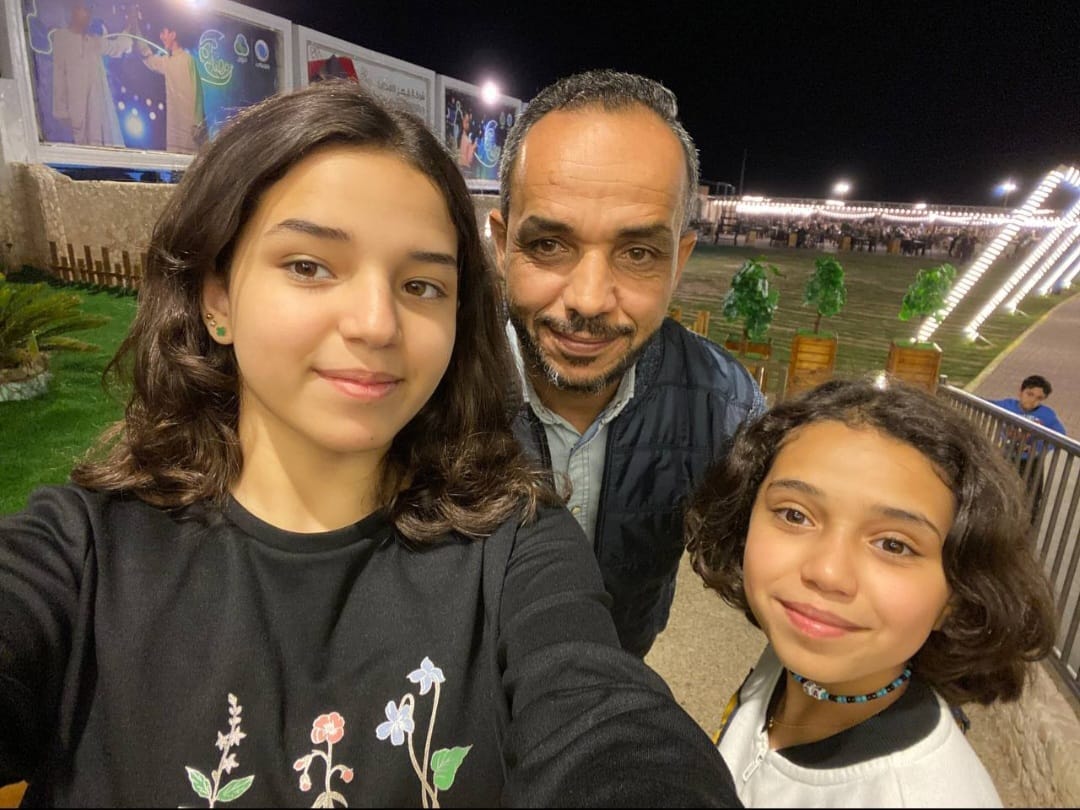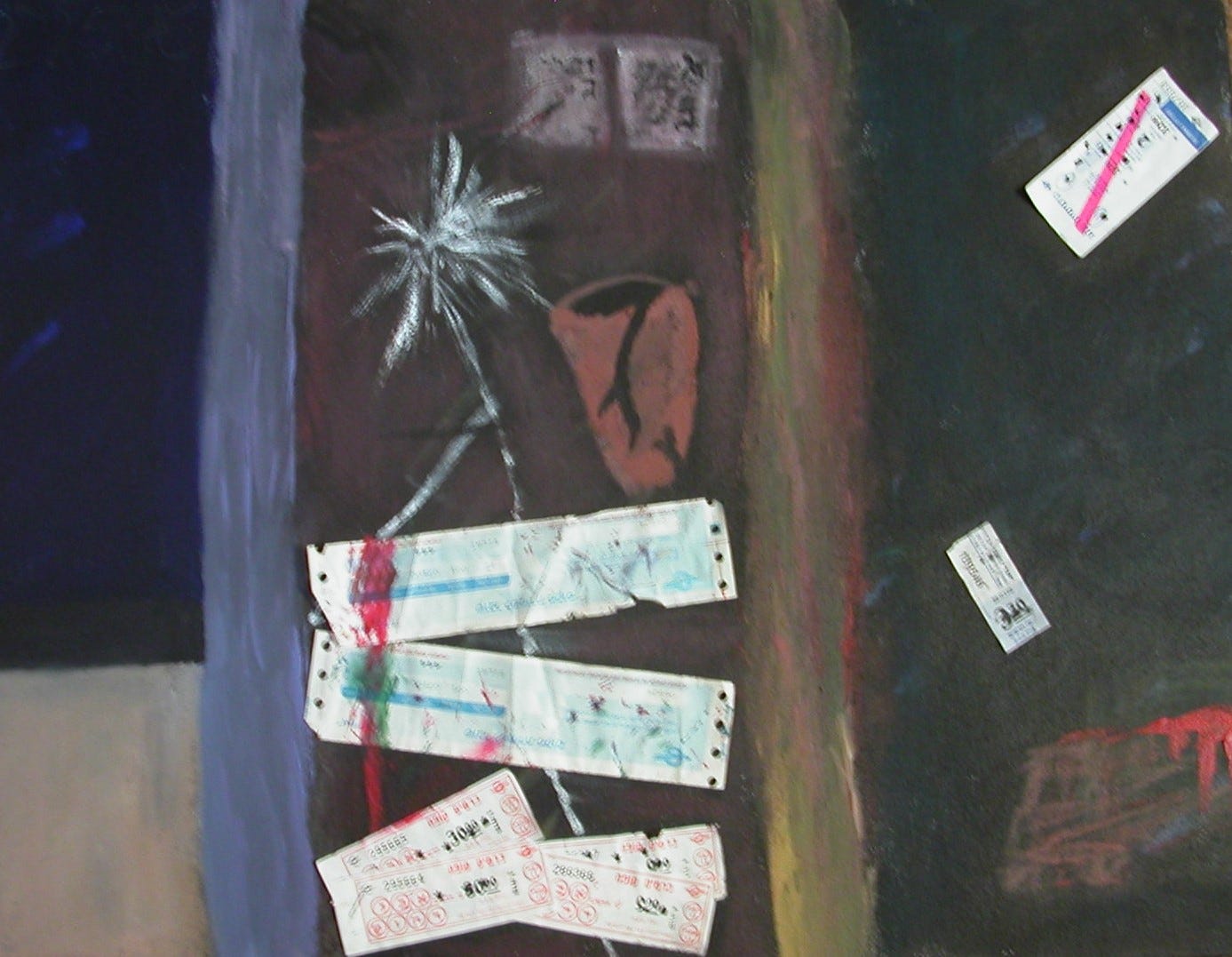The Background Hum of Dread
Freedom lies in the simple triviality of the everyday.
1. Trigger Warning
Many years ago, Bill McKibben told a story of going for a hike and hearing the sound of a chainsaw, a noise that punctured his sense of being in “nature,” something apart from human civilization. With human-caused climate change affecting every ecosystem on the planet, McKibben continued, it’s as if the sound of the chainsaw is always in the woods. The silence of “nature” has ended forever.
I was reminded of this metaphor this week, reflecting on the war in Gaza, and more particularly, on the 132 hostages still held by Hamas. The deafening noise has abated, but the background hum is always there, ready to emerge at the slightest provocation.
To be sure, mine is a fortunate situation. Unlike Palestinians and Israelis, I have the luxury of occasionally forgetting about the conflict. I have no friends or relatives in serious harm’s way. I’ve consciously reduced my news intake, which is hardly an option if your aunt’s apartment bloc in Gaza City might get bombed, or if you have kids serving in the army. I’m lucky.
This it is where many American Jews find ourselves: we’re living in a kind of twilight. While I don’t think I’ve gone a full day without thinking about the war, I have gone several hours. I’m no longer torn up with anger, fear, grief, or anxiety. I haven’t gone out and socialized that much (and when I have, it’s usually been awkward) but otherwise, I’m pretty much living my normal life.
Except that I’m not. The chainsaw is always in the woods, an ever-present background hum of dread. And then suddenly, it becomes audible.
Shortly after October 7, Israeli poet Maya Tevet Dayan wrote a heartbreakingly relatable poem entitled ** that went viral in Jewish social media. My friend Zac Kamenetz’s translation is here:
**Trigger Warning: Shabbat **Trigger Warning: Kibbutz **Trigger Warning: Field **Trigger Warning: Party **Trigger Warning: Baby **Trigger Warning: Door **Trigger Warning: Doorknob **Trigger Warning: Every shower she takes at night, every “I’m cold,” every “I’m hungry,” every “What do you want to eat?,” every omelette, every sweater, every “I don’t want socks,” every “Ima,” (**TW: Ima), every time I wake up at in any given hour during the night (**Trigger Warning: night, night), every time the blanket rises and falls, God—make it rise and fall!, every time I whisper in the dark to myself “She’s here, she’s here,” every time I whisper to her “Ima’s here, Ima’s here.”
Here it is in Hebrew:
Three months on, I feel like this poem resonates even more than in October. Things are mostly fine, I’ve basically forgotten, but someone says kibbutz, and my mind flashes to gruesome images, and I remember.
To be sure, this phenomenon has no political limitations; any moment can summon images of devastation and horror from Gaza as well. Look, here’s a picture that a friend of mine posted today on social media of his friend Sharif, who lives in Gaza and has “dedicated the last 10 years of his life to advocate for the rights of women and girls in Gaza”:
His two daughters, pictured here, were just killed.
And of course this is happening every day. And the hostages are still hostages; they’re still being tormented, as I sit at dusk in my office and type these words on the computer. All of this is unbearable.
And yet we bear it, whether by tuning it out or compartmentalizing or simply carrying on. Yet even when the war is nowhere in my conscious mind, I think this background hum of trauma continues to affect me. How could it not? I’m much better than in November, but I’m still easily provoked to anger or sadness. I snap at everybody, including myself. I’m not taking care of my body or my mind the way I normally do. Cliches come to mind: on thin ice, a hair-trigger. I’m making mistakes I don’t usually make. I’m off my game.
Even when the conscious mind forgets, the body remembers.
Freedom is Trivia
I lived in Israel during a time when Hamas terrorist attacks were fairly common, mostly in the form of bombs placed on buses or in restaurants. I was struck how what was shattered was not Israel’s specialness – not the uniqueness of the holy land or the specificity of its conflicts – but its ordinariness. One of my favorite cafes was bombed. A spot where I shopped in the shuk was bombed. A bus I rode regularly was bombed.
What was destroyed in those moments, beside the lives lost of course, was the simple triviality of the everyday: a cappuccino, a watermelon, a trip to the national library. All we wanted, I felt, was to go about our ordinary lives doing ordinary things. And then the extraordinary intruded into it.
I’ve often felt that nationalists, in particular, fail to grasp this. For them, it’s the extraordinary that matters: destiny, peoplehood, the motherland, American values, Russian strength, a national struggle, a religion. For what I’d like to think is the silent majority of humans, that stuff may matter somewhat, but the to-do list, the laundry, the dinner preparation matter more, as do, of course, our relationships with friends, family, and others; our ordinary lives with their joys and tragedies. Israelis, Palestinians — most are simply trying to live our lives and experience some safety, joy, and love. Real freedom is trivia.
Israeli poet Yehuda Amichai concludes his poem “Tourists” with this bit of prose poetry:
Once I sat on the steps by a gate at David's Tower. I placed my two heavy baskets at my side. A group of tourists was standing around their guide and I became their target marker. "You see that man with the baskets? Just right of his head there's an arch from the Roman period. Just right of his head." "But he's moving, he's moving!" I said to myself: "redemption will come only if their guide tells them, ‘You see that arch from the Roman period? It's not important: but next to it, left down and a bit, there sits a man who's bought fruit and vegetables for his family.’”
I’ve come to grow suspicious of the special, whether it’s a religion, a nationality, a spiritual experience, even a celebrity or work of art. The music is better when the volume is low. But the people with the guns — it’s as if ordinary lives aren’t enough for them. Certainly that’s true in the movies we watch about such people, their heroism, and their extraordinary, destructive acts.
How dare I?
When an unwanted eruption of grief arises in the midst of some concert, or social gathering, or even at the grocery store, often it comes with a dose of guilt. Is it irresponsible to enjoy a concert or a movie when, at this instant, hostages are being starved and tortured underground? Here I am, living my life, and people in Gaza (and below it) are in misery. It’s hard to reconcile the simultaneity of the quotidian and the horrifying.
At such times, I’ve sometimes had the preposterous, perhaps inappropriate thought of how even Jews in concentration camps made ritual objects, toys, hairbrushes, and the accoutrements of everyday life out of whatever materials they could find. They were not living in a normal reality, and yet they still did normal things. This is part of the human spirit: our ability to compartmentalize and thus to persist. In fact, it was precisely those inmates’ normal pursuits that constituted resistance. They were dehumanized, but stubbornly remained human; they were doomed to death, but continued to live life. They still cared about combing their hair or celebrating Shabbat.
And the same is true of people in refugee camps in southern Gaza right now, or those fleeing Hezbollah rockets living in luxury hotels at the Dead Sea. When nothing is normal, normalcy becomes a kind of resistance.
To be clear, I’m not claiming that for myself. I’m not resisting, and I’m definitely no hero. I’m just being a human being. And anyway, the respites are temporary. I feel another shock and I remember. Or lash out. Or make some stupid mistake.
I also don’t mean to suggest that I’m suffering. I’m not. I’m fine. Or rather, I’m fine until I’m not, until I remember that the fine depends on a kind of willful unhearing, until suddenly the background hum of dread reasserts itself.
Well, that was a cheerful one. If it resonates for you, I hope it brings you some company, maybe even solace. It is January, after all.
Things going on: a book event in Montclair NJ this Sunday. A Forward article on media outlets exaggerating incidents of (alleged) antisemitism. With a bunch of snow days here in the Northeast, I’ve been struggling just to stay on top of work. Next week, I’ll be announcing a few more book dates and upcoming events.






Such a painful post, and yet reaches me like a hug this morning. Thank you.
You have captured the mood very well.